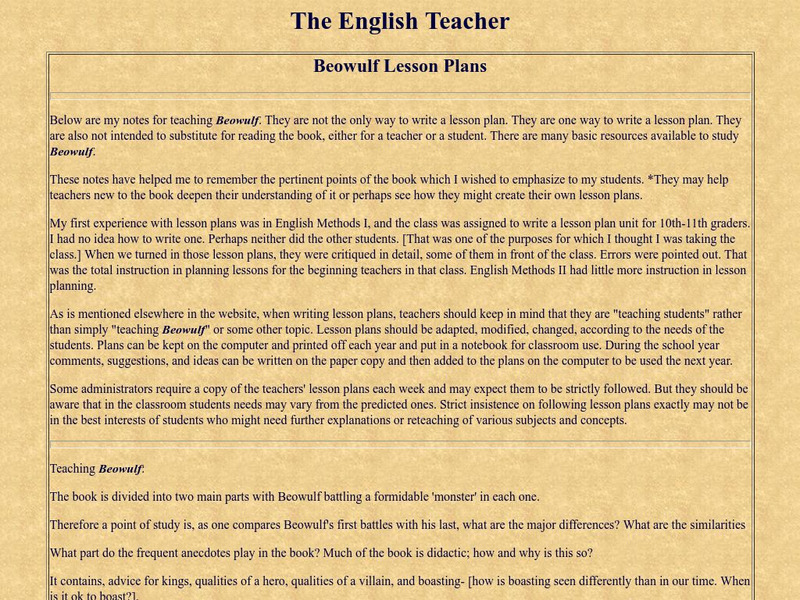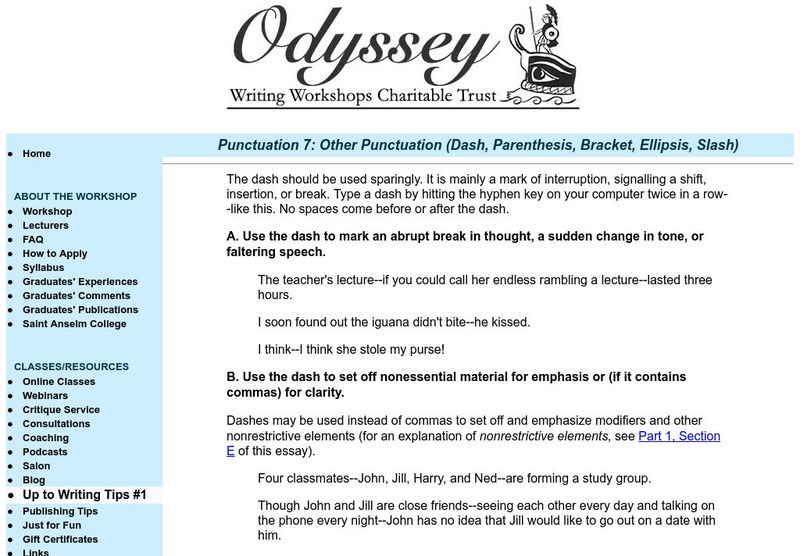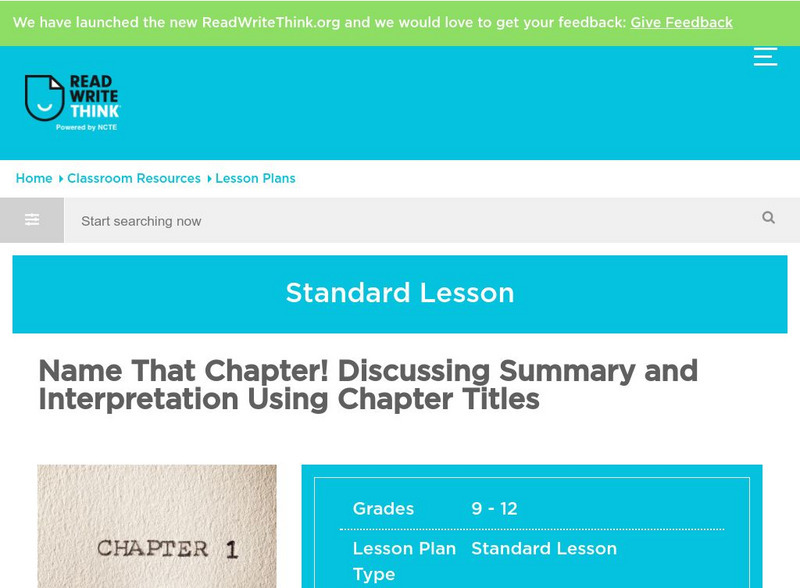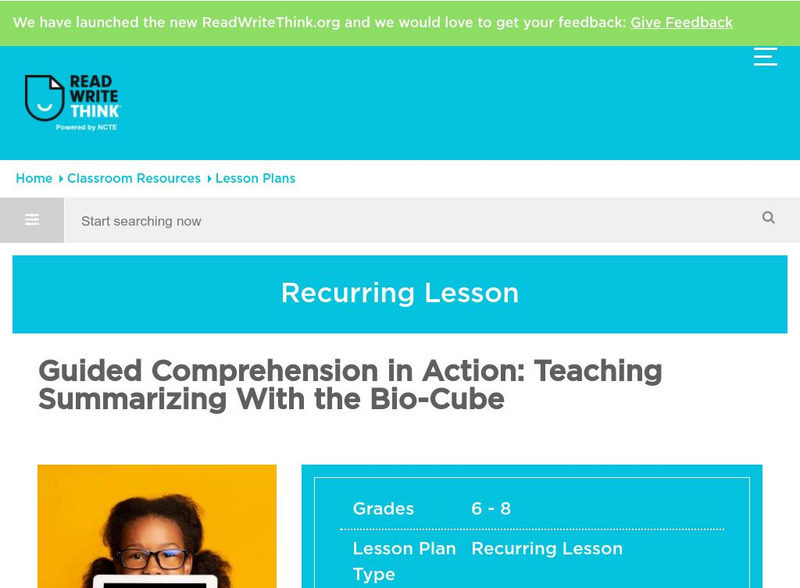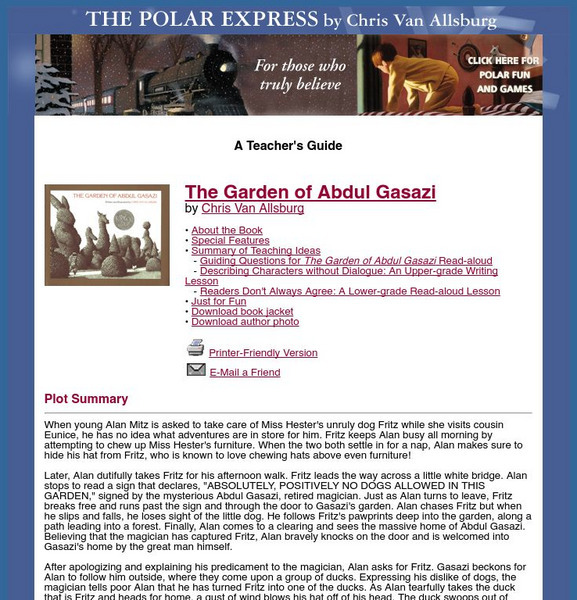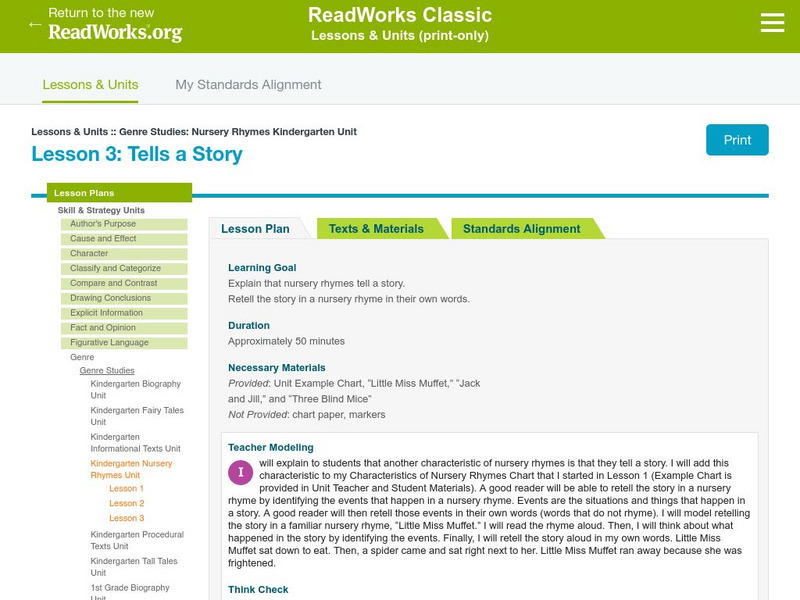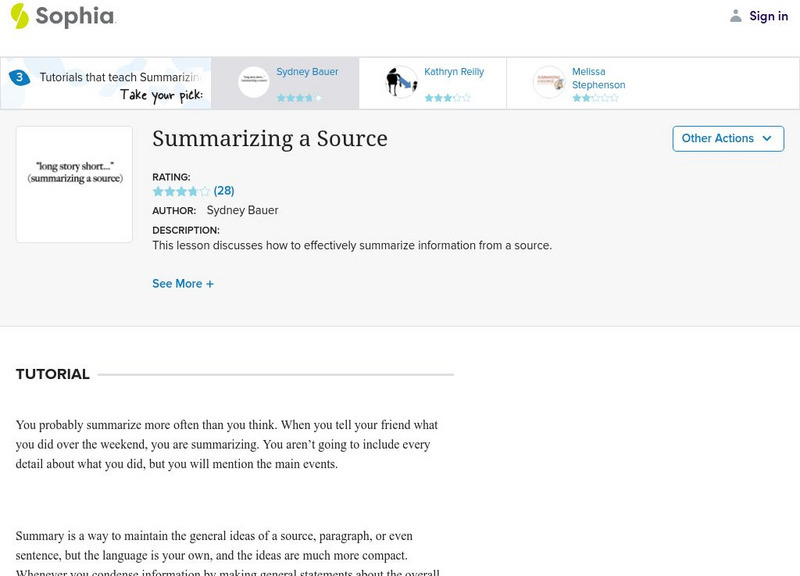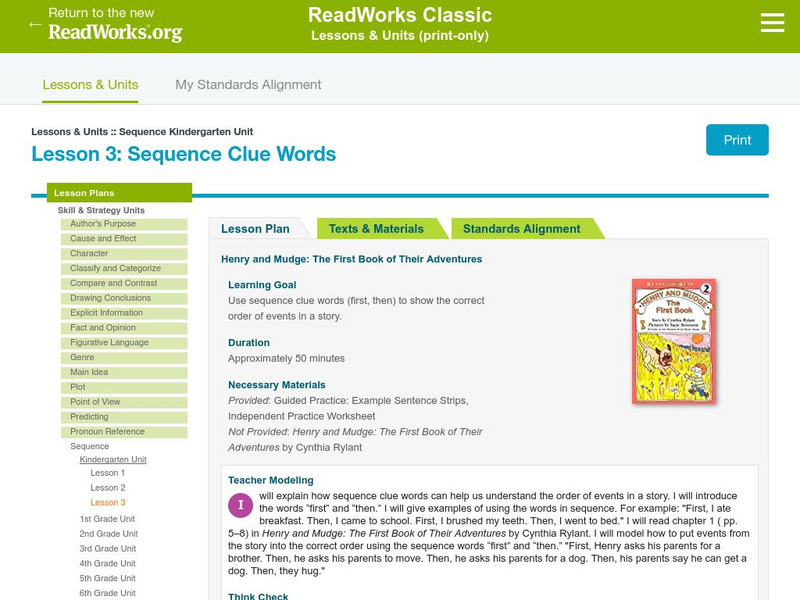Hi, what do you want to do?
Wisconsin Response to Intervention Center
Wisconsin Rt I Center: Writing to Learn [Pdf]
Teachers will learn how to use Writing to Learn as a formative assessment tool. Teachers will learn how to implement the strategy, measure progress, and find research to support writing to learn. A list of Writing to Learn activities is...
Polk Brothers Foundation Center for Urban Education at DePaul University
De Paul University: Center for Urban Education: I Can Identify and Infer Character Traits[pdf]
Students will identify character traits directly and inferentially with the help of this graphic organizer. Students will summarize their findings after completing the graphic organizer.
Polk Brothers Foundation Center for Urban Education at DePaul University
De Paul University: Center for Urban Education: Classify and Summarize Information [Pdf]
This learning module contains a link to graphic organizers that will help students categorize content and comprehend short and extended texts. The graphic organizers are designed to be applied to reading nonfiction passages in science...
University of Sydney (Australia)
The Write Site: Summary: Paraphrasing
This site provides a list of reminders about paraphrases. Then student will self-assess their own writings to ensure that they have properly used their paraphrases.
The English Teacher
The English Teacher: Beowulf Lesson Plans
These teaching notes for Beowulf provide a model for your own lesson plan and as a basic resource to study Beowulf. These notes can help you remember the pertinent points of Anglo-Saxon epic poem and help to deepen your understanding.
Other
Literature Unit: "A Day No Pigs Would Die"
This site features questions for each of the chapters in Robert Newton Peck's "A Day No Pigs Would Die."
Other
Dash, Parentheses, Bracket, Ellipsis, and Slash
This site contains information on the correct use of the following types of punctuation: dash, parentheses, bracket, ellipsis, and slash. Examples are provided for each of the uses discussed.
ReadWriteThink
Read Write Think: Name That Chapter! Discussing Summary and Interpretation
Young scholars name unnamed chapters in a novel they are reading. They discuss possible chapter names considering accuracy, word choice, and connotation, before settling on a choice.
ReadWriteThink
Read Write Think: Get the Gist: A Summarizing Strategy for Any Content Area
A five-part standards-based lesson in which students learn to write a 20 word summary of an informational text by focusing on answering the questions who, what, when, where, why, and how. This strategy can be applied to any content area,...
ReadWriteThink
Read Write Think: Book Report Alternative: Bookmarks
Interesting online lesson that offers a twist on the traditional book report. Students use bookmarks online to justify their preferences and offer analysis of text; they use summaries and symbols to write and analyze.
Austin Independent School District
Austin Independent School District: Summary of Fiction and Nonfiction Text [Pdf]
This 31-page document focuses on teaching summarizing strategies for use with fiction and nonfiction texts. This series of lesson plans starts with fiction summarizing strategies such as "Somebody-Wanted-But-So-Then" and "Story Arch."...
ReadWriteThink
Read Write Think: Guided Comprehension in Action: Teaching Summarizing
Students learn the ins and outs of writing biographies by researching a contemporary or historical figure and writing a summary.
Houghton Mifflin Harcourt
Houghton Mifflin: The Garden of Abdul Gasazi
Explore this informative teachers' guide for the book, "The Garden of Abdul Gasazi," by Chris Van Allsburg. Students and teachers will enjoy this comprehensive source.
ReadWriteThink
Read Write Think: Guided Comprehension: Summarizing
Lesson that introduces students to the comprehension technique of summarizing. Students learn using the QuIP (questions into paragraphs) method which involves organizing information and putting it in writing.
Other
Indiana University of Pennsylvania: Writing Center: Writing Strong Conclusions
This Indiana University of Pennsylvania Writing Center site provides tips to writing a strong conclusion to an essay. The article discusses incorporating an anecdote, a basic summary, a startling summary, famous ideas, and/or hints to...
E Reading Worksheets
E Reading Worksheets: Reading Activities
An assortment of reading mini-projects are included on this site. Reading skills worksheets and differentiated reading activities are also included.
Virtual Bangladesh
Virtual bangladesh.com: Rabindranath Tagore
A biography of the famous author, an example of his work, and even includes audio.
TES Global
Blendspace: Summarizing
A twelve-part learning module with links to videos, images, websites, and text about summarizing a text.
Varsity Tutors
Varsity Tutors: Web English Teacher: Joseph Conrad
Explore the life and work of the famous author Joseph Conrad through this informative site.
Read Works
Read Works: Genre Kindergarten Unit: Tells a Story
[Free Registration/Login Required] Students learn that nursery rhymes tell a story and learn to retell that story in their own words. Texts are provided with free login.
Sophia Learning
Sophia: Summarizing a Source
Information that can be read or listened to that discusses two methods of how to write effective summaries as well as how to avoid plagiarism when summarizing informational texts. Finally, examples of literary summaries are provided....
Read Works
Read Works: Sequence Kindergarten Unit: Sequence Clue Words
[Free Registration/Login Required] Teach students to identify the sequence of a story by looking at transitional words such as "first" and "then" in the book Henry and Mudge: The First Book of Their Adventures by Cynthia Rylant. Learning...
Other
Elements of Fiction
Simple discussion of the elements of fiction with a specific section devoted to Freytag's Pyramid (aka "basic plot structure"). A good place to start for gathering information on the structure of narrative.
Polk Brothers Foundation Center for Urban Education at DePaul University
De Paul University: Center for Urban Education: Inaugural Address by John F. Kennedy [Pdf]
This is a one-page nonfiction excerpt from JFK's Inaugural Address on January 20, 1961. It is followed by an open-ended question which requires students to provide evidence from the story; it includes underlining the most important...





![Wisconsin Rt I Center: Writing to Learn [Pdf] Professional Doc Wisconsin Rt I Center: Writing to Learn [Pdf] Professional Doc](https://static.lp.lexp.cloud/images/attachment_defaults/resource/large/FPO-knovation.png)
![De Paul University: Center for Urban Education: Classify and Summarize Information [Pdf] Unit Plan De Paul University: Center for Urban Education: Classify and Summarize Information [Pdf] Unit Plan](https://content.lessonplanet.com/knovation/original/78057-7ba90e0b8b82fde8e26d306a4af31f79.jpg?1661787062)
